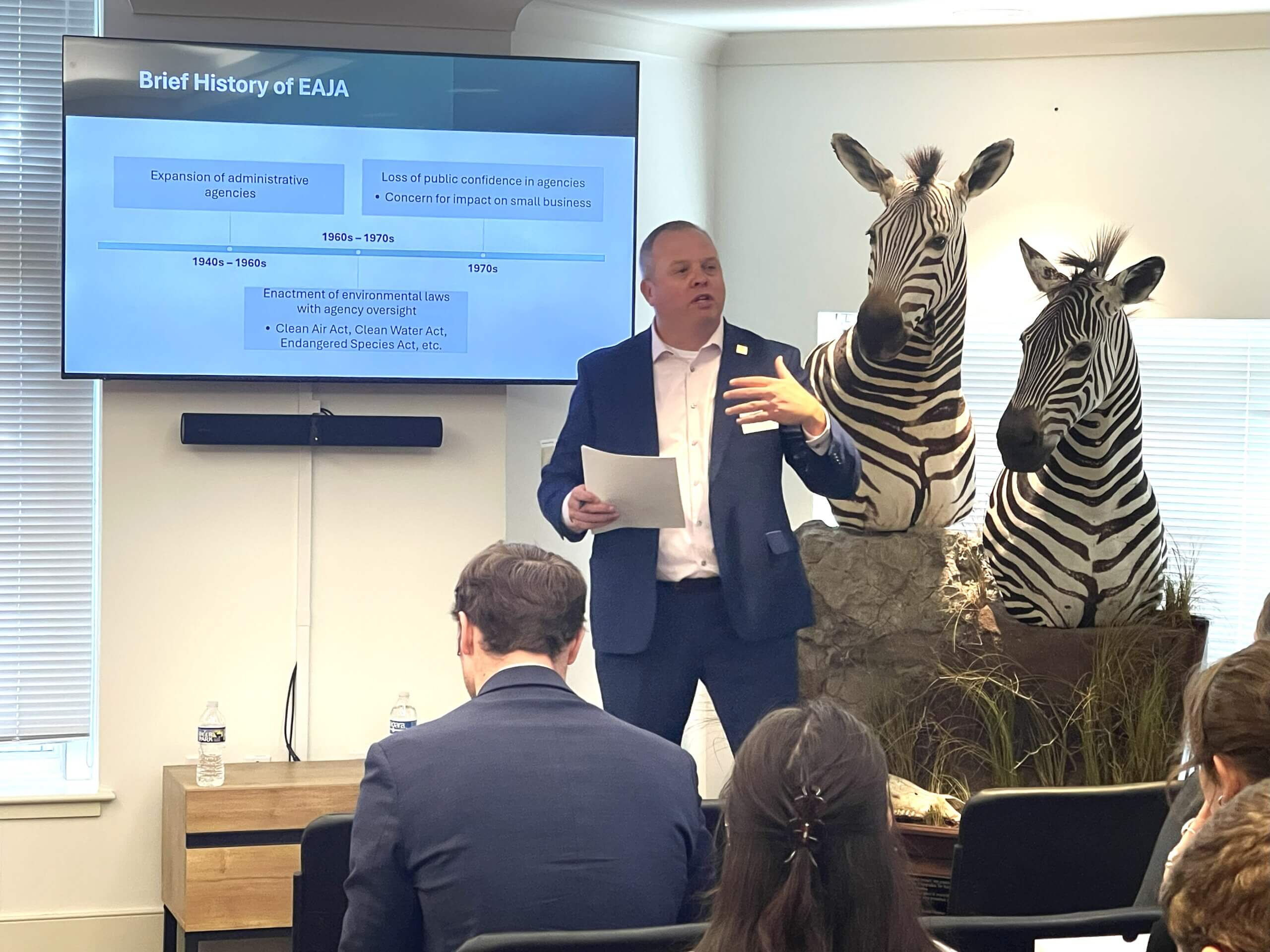Two dozen congressional staffers who focus on natural resources and judiciary issues gathered a mere half mile from Capitol Hill to learn and represent the offices of their elected representatives. Regina Lennox, senior litigation counsel for Safari Club International (SCI) and Rocky Mountain Elk Foundation Director of Government Affairs Ryan Bronson, who accepted an invitation to SCI’s advocacy headquarters, served as presenters.
The topic was the Equal Access to Justice Act (EAJA), a measure enacted by Congress 45 years earlier. Much of the information presented came from a book by attorney and Boone and Crockett member Lowell Baier titled, “Inside the Equal Access to Justice Act, Environmental Litigation and the Crippling Battle over America’s Lands, Endangered Species, and Critical Habitats,” in addition to the RMEF Bugle magazine article “Equal Access to Injustice.”
“The Equal Access to Justice Act was enacted with good intentions to give small businesses and individuals the ability to fight an unresponsive government in court,” said Bronson. “However, by letting well-funded and litigious environmental organizations get their lawyers’ fees paid, the incentive to file suits and delay important habitat management projects has only grown. Litigation is now one of the biggest barriers to wildlife habitat improvement on federal lands.”

EAJA authorizes attorney fees to individuals and businesses that win cases against the U.S. Government, but eligibility requirements apply to individuals ($2 million net worth) and businesses ($7 million net worth). On the other hand, there are no requirements applied to 501(c)(3) nonprofit organizations. As a result, large and well-funded litigant environmental organizations are getting paid with the taxpayer money to sue taxpayer-funded agencies to stop habitat management projects important to elk, mule deer, moose, bears and a plethora of other wildlife, bird and fish species.
From 1995 to 2019, there were no prerequisites to report what agencies paid in EAJA settlements. That ended in 2019 when the sportsmen-led Dingell Act created a database to track awards. Since then, environmental groups received $19,354,912.61 in taxpayer dollars from the agencies that oversee fish and wildlife habitat and management, specifically the U.S. Department of Agriculture, Department of Interior and Department of Commerce.
In two past U.S. Fish and Wildlife Service efforts to delist grizzly bears in the Greater Yellowstone Ecosystem, plaintiffs used technicalities to receive payouts of more than $1 million in taxpayer funds, including one attorney fee rate of $460 per hour.
Bronson, Lennox and others have proposed several congressional solutions to rectify the abuse:
- Make nonprofits consistent with other businesses or individuals and exempt large, well-funded organizations from receiving EAJA payments
- Restrict sue-and-settle agreements in law by codifying past secretarial orders
- Cap payments any entity can receive in a year to $100,000 or three awards to stop rewarding serial litigation
- Require that there actually be damages for an award to be made, stop paying fees for technicalities or delays that do not substantively change projects
- Create stronger vetting requirements for courts to make EAJA awards rather than giving judges full discretion
(Photo credit: Rocky Mountain Elk Foundation)